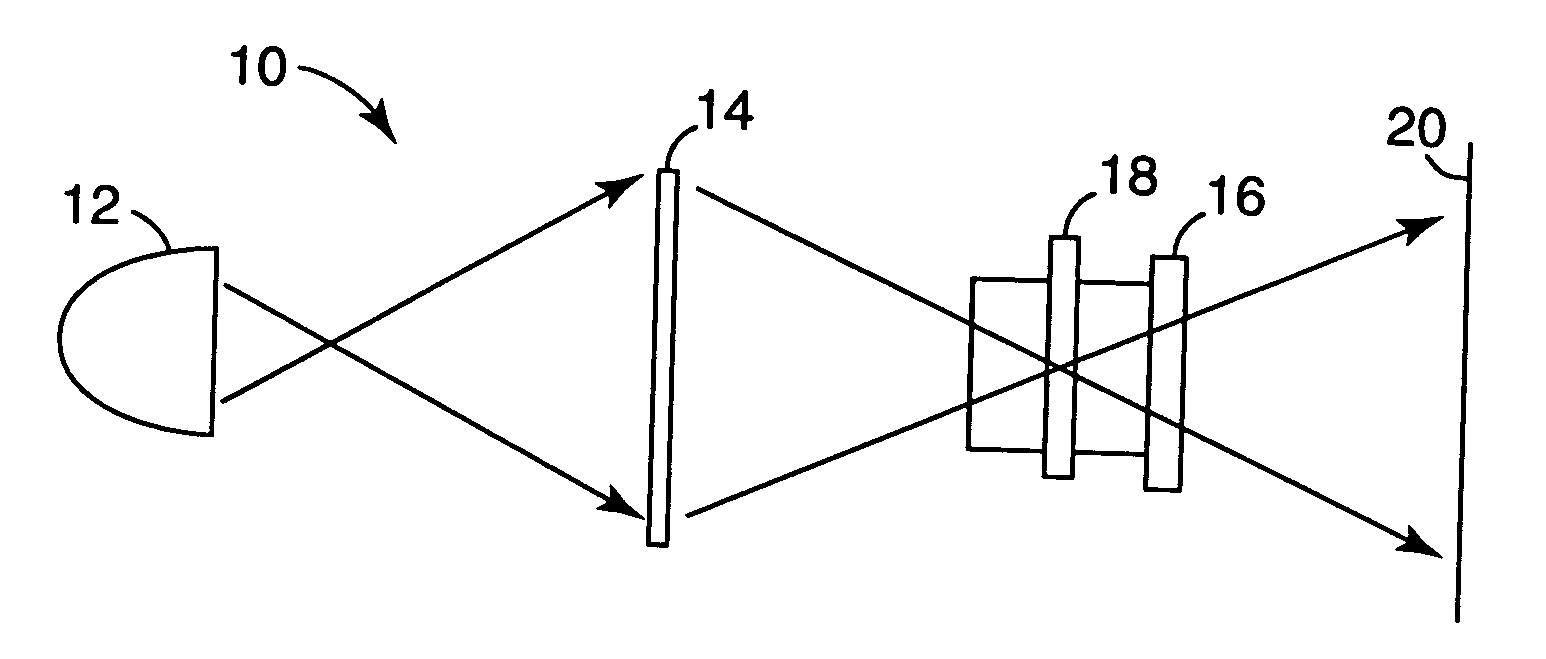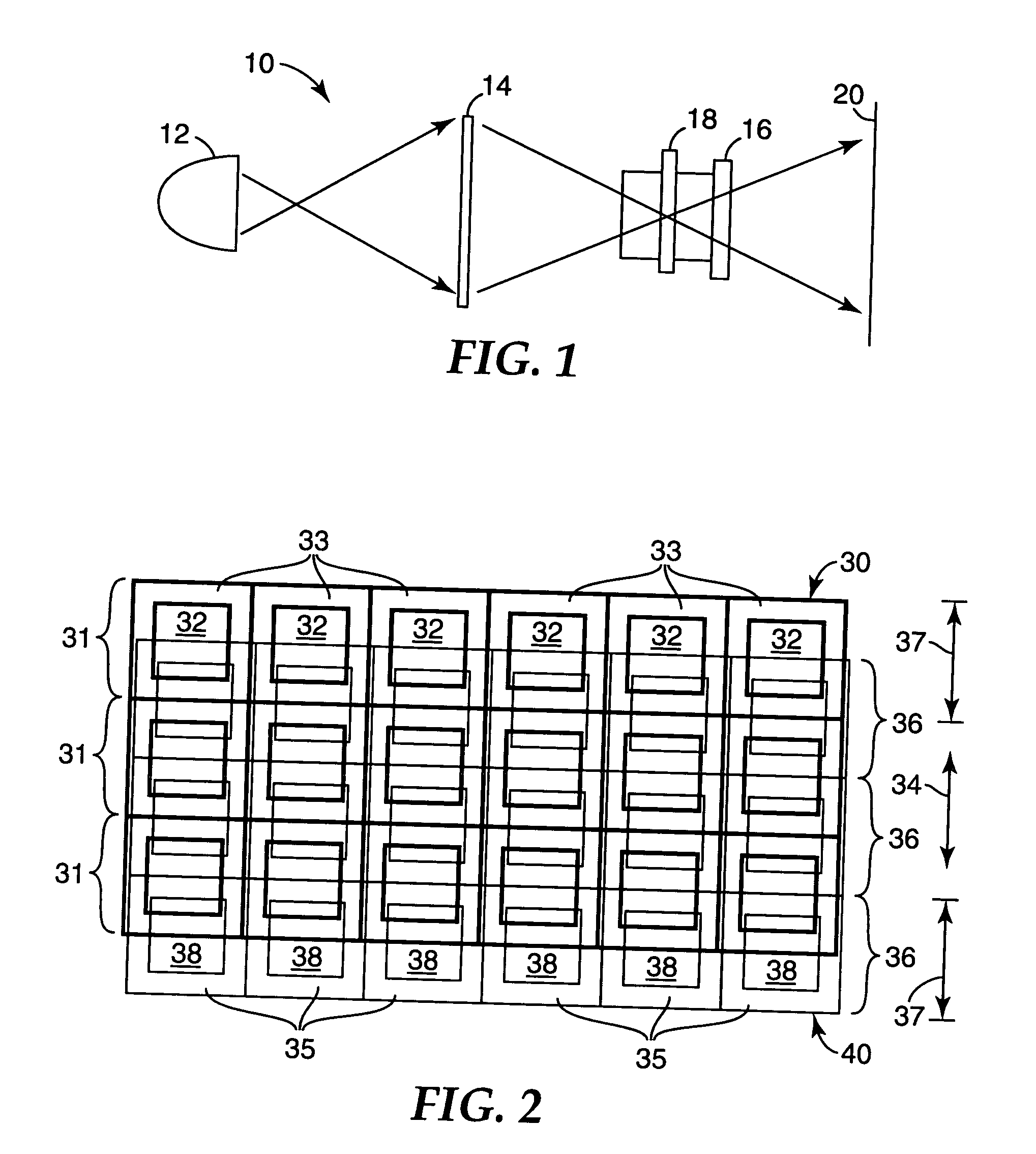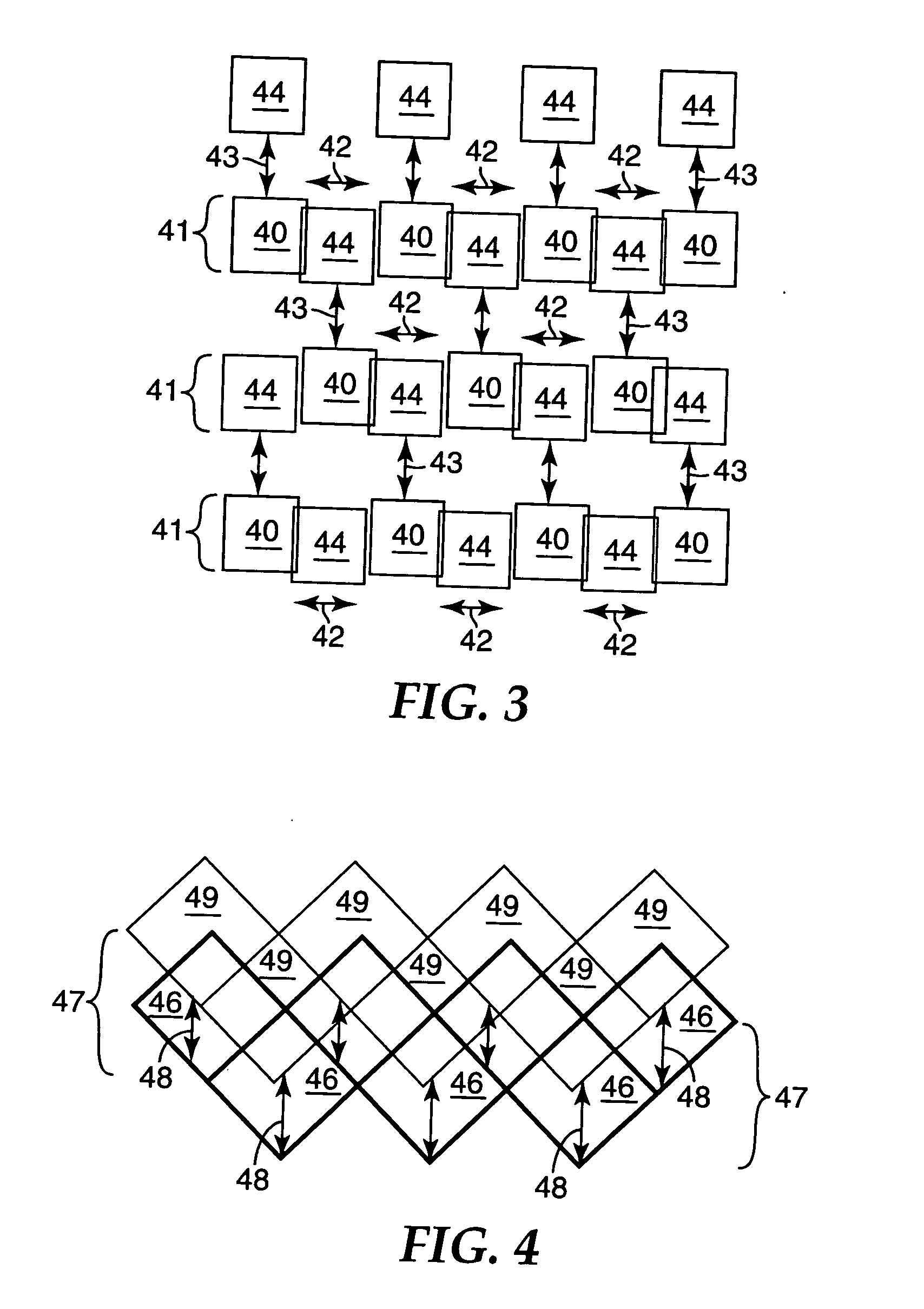Pixel-shifting projection lens assembly to provide optical interlacing for increased addressability
a technology of projection lens and optical interlacing, which is applied in the field of projection lens assembly, can solve the problems of introducing defects relating to differences in the propagation angle of light being projected toward different portions of the display screen, affecting the accuracy of projection, so as to reduce the difficulty of manipulating a pixel-shifting elemen
- Summary
- Abstract
- Description
- Claims
- Application Information
AI Technical Summary
Benefits of technology
Problems solved by technology
Method used
Image
Examples
Embodiment Construction
[0023]FIG. 1 is a schematic side view of a projection display system 10 employing pixel-shifting optical interlace for increased pixel addressability according to the present invention. Projection system 10 includes an illumination system 12, a pixelated display device 14, and a multi-lens projection lens assembly 16 with a pixel-shifting element 18. It will be appreciated that the schematic representation of FIG. 1 does not show various conventional optical elements as are known in the art of projection displays.
[0024] Illumination system 12 directs illumination light at pixelated display device 14, which imparts display information on the illumination light in any conventional or similar manner. Pixelated display device 14 may include a liquid crystal display, a digital micromirror device, or any other type of pixelated display device. Illumination light may be transmitted through pixelated display device 14 as illustrated or may alternatively be reflected from it. Projection len...
PUM
 Login to View More
Login to View More Abstract
Description
Claims
Application Information
 Login to View More
Login to View More - R&D
- Intellectual Property
- Life Sciences
- Materials
- Tech Scout
- Unparalleled Data Quality
- Higher Quality Content
- 60% Fewer Hallucinations
Browse by: Latest US Patents, China's latest patents, Technical Efficacy Thesaurus, Application Domain, Technology Topic, Popular Technical Reports.
© 2025 PatSnap. All rights reserved.Legal|Privacy policy|Modern Slavery Act Transparency Statement|Sitemap|About US| Contact US: help@patsnap.com



